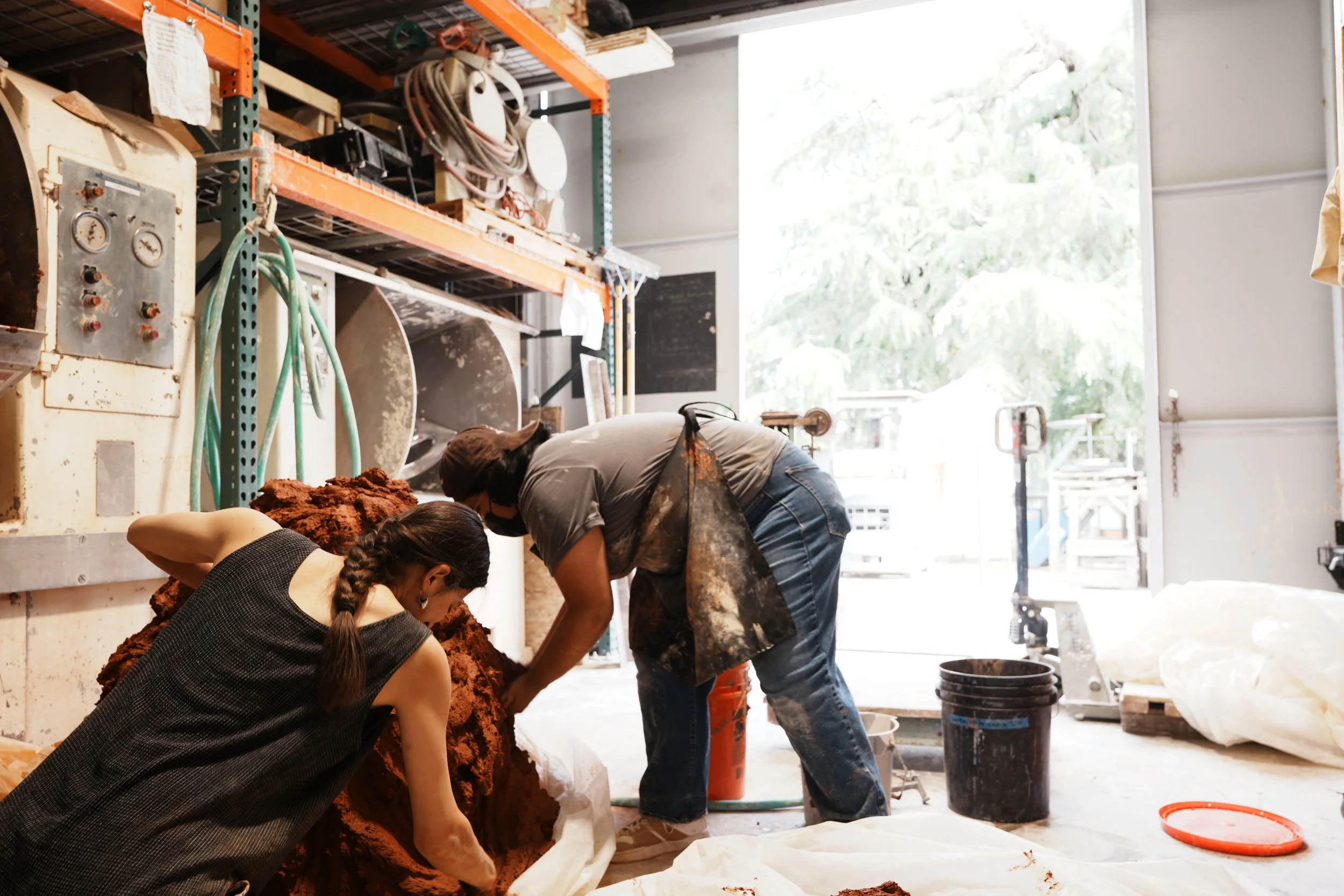
matal: building, riding, longing
Behind-the-Scenes for The Matal Improvisations
Josephine Devanbu
Photo Credit: Marjorie Williams
Josephine Devanbu is a sculptor and performance artist whose work investigates longing, desire, and spiritual embodiment. Raised in Davis, California and trained at Brown University and the Rhode Island School of Design, she is currently an M.F.A. candidate at the University of California, Davis.
Taking inspiration from Trika Shaivism and Ancient Tamil Poetry, her practice explores the space between desire and fulfillment. Recent works include large-scale clay sculptures inspired by the matal, a devotional form built and ridden by the lovelorn. Through salvaged materials and somatic gestures, she treats desire not as a flaw to fix, but as a force that shapes the world.
Past Works
Performance Still: Foam
2024
Performance Still: Herd
2024
Behind The Scenes:
matal: building, riding, longing
Behind-the-Scenes for The Matal Improvisations
In Josephine Devanbu’s studio, you will ride through a world shaped by damp clay and tarnished metal, where everything hovers between vision and desire.
It’s chaotic and alive. Josephine makes her sculptures by climbing up onto piles of clay and using the full weight of her body to mold giant yet delicate creatures, an ordeal to lift yet fragile enough to crumble at the touch. Each sculpture, which she refers to as a matal, reaches out—-bending, slumping, kneeling—not toward elegance or resolution, but toward a feral beauty of desire, grief, and confusion.
Josephine’s matal series is an ongoing body of work inspired by a ninth century poem translated from Tamil, her father’s mother tongue. In the poem, a woman desperate to unite with God promises to build and ride a matal— a palm-leaf horse made and mounted by the lovelorn as a scandalous public platform from which to plead to their unrequited beloved.
My Friend, this I swear:
I shall shock all the earth
I shall do weird deeds
and ride the palmyra stem like a horse
With no sense of shame, I shall ride
the palmyra stem through every street in town
and women from all the lands will cheer me on.
From the Tiruvaymoli (translated by Archana Venkatesan.)
Josephine’s Spiritual Tradition, Trika Shaivism, regards desire as the most powerful force in existence. Desire is not something to be denied or transcended; but rather the very reason the universe exists. According to this cosmology, all phenomena arise from a single, undivided consciousness, Śiva, that chooses to limit and divide itself for the purpose of experiencing relationship, difference, and play. This initial act of self-division, or “carving itself up,” as Josephine introduces, is driven by a kind of primal, ecstatic longing to become many, to know itself through otherness.
With all these thoughts and inspirations, the matal stretches forward, but never promises an arrival. Instead, these pieces hold open the space between need and fulfillment. “What if your longing isn’t a distraction,” she asks, “but the very thread to follow doggedly?”
Photo credit(first 2): Marjorie Williams. Photo credit(last): Edgar Zhang
Writer Edgar Zhang Editor Rachel Wang, Ava Thorsen, Josephine Devanbu
Back to Art Studio Graduation Thesis 25’
The physical booklet will be available in the lobby at @manettishrem throughout the show, June 5 to June 22, 2025.







